Prince Charles Hospital: Baby died 'due to delayed delivery'
- Published
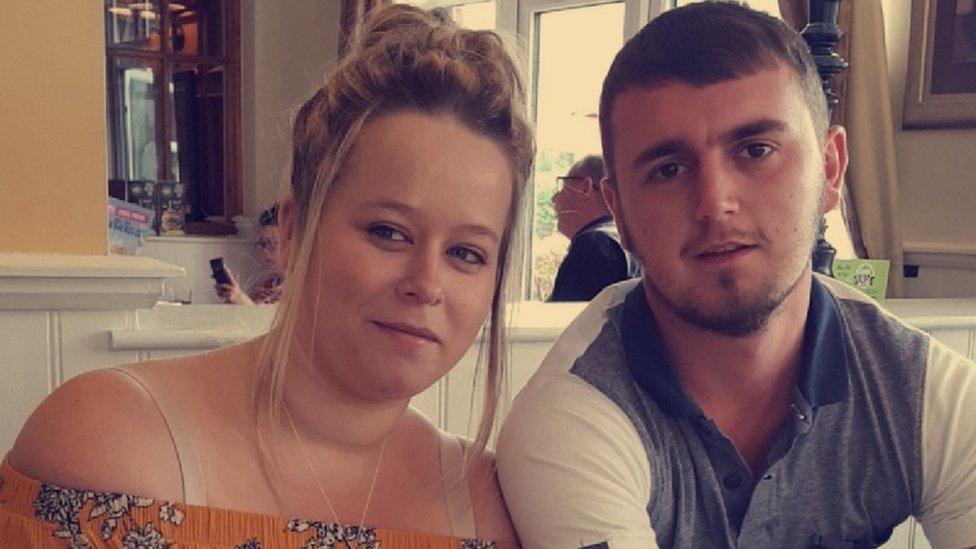
Tiffany Gillard and James Francis' son Jenson died shortly after he was born in June last year
A Welsh hospital's failure to deliver a baby at an earlier stage led to his death, an inquest has heard.
Tiffany Gillard was under the care of maternity staff at Prince Charles Hospital in Merthyr Tydfil when her son Jenson James Francis died last June.
The inquest, which opened at Pontypridd Coroner's Court on Tuesday, comes after Cwm Taf health board maternity services were placed in special measures.
Jenson was born at 05:00 BST on 21 June 2018, but died 40 minutes later.
Ms Gillard said she was left "shocked and numb" the moment she discovered Jenson had died.
Ms Gillard told the inquest she attended the hospital on 19 June after her waters broke and was seen by student midwife Kelly Richards, who was under the supervision of a senior midwife Sian Philips.
Ms Philips told the inquest she had confidence in Ms Richards' abilities.
'A concern'
The inquest heard Ms Gillard had a maternal pulse of 135. Ms Philips said a maternal pulse over 100 "is a concern" and that she was not informed of this.
Asked what she would have done had she known, Ms Philips said she would have requested a doctor because the maternal pulse "was quite significant".
On 20 June, Ms Gillard was struggling with an infection, the inquest was told.
That evening Ms Gillard's care was handed to midwife Mia White, who learned the patient had been induced due to prolonged rupture of membranes.
Ms White said Ms Gillard appeared "very distressed".
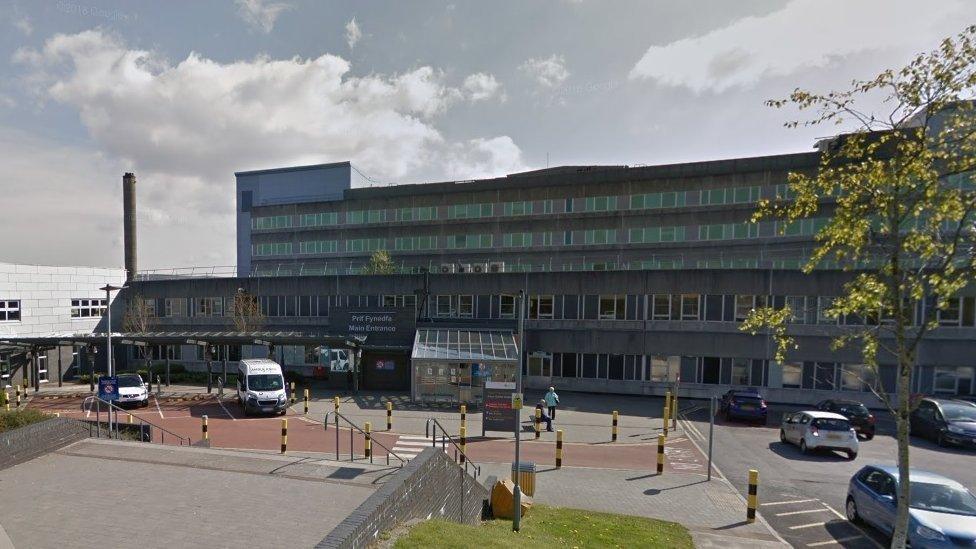
Tiffany Gillard's son died as a result of failures by maternity staff at the Prince Charles Hospital in Merthyr Tydfil, an inquest heard
At around 23:00, Ms White said an epidural - a type of an anaesthetic used in pregnancy - was found to be ineffective and a "fresh eyes review" was requested.
She said Dr Alia Bashir provided the review and Ms Gillard was given pain relief and treated for sepsis.
Senior midwife Jackie Shuck said Dr Bashir had told her Ms Gillard's cardiotocography (CTG) - a recording of the foetal heartbeat and uterine contractions - was normal.
Ms Shuck said she had wanted to request the presence of on-call consultant Dr Sreevidya Ambika because Dr Bashir was in theatre while there were two high-risk patients on the ward.
But she said Dr Bashir reassured her and Dr Ambika that Ms Gillard's CTG was normal, the inquest heard.
'Frustrated and angry'
Responding to further questioning, Ms Shuck said she made Dr Ambika aware the labour ward was busy and short-staffed.
She added she was "frustrated" and "angry" at Dr Ambika because she felt she was not listened to as a senior member of staff.
"I did not ask for her to attend as I was reassured by Dr Bashir, although I feel she should have attended," she said.
At 03:50 on 21 June, Dr Bashir saw Ms Gillard and informed the theatre to prepare.
Jenson James Francis was born just after 05:00. Efforts were made to resuscitate him but he was pronounced dead at 06:30.
The inquest also heard from consultant obstetrician and gynaecologist Jonathan Rogers, who had cared for Ms Gillard throughout her pregnancy but was not present during labour.
He told the inquest "delivery should have been considered by 03:00 because the CTG was of 'significant concern'".
Dr Rogers added that delivery should have been by caesarean section - effected within 30 minutes.
Given the concerns about Ms Gillard's maternal heart rate, Dr Rogers said he would have expected "most clinical colleagues" to have had her blood checked for infection.
The inquest heard Ms Gillard's blood had been taken around midnight, but the results were not made available until around 04:00 - Dr Rogers said they should have been made available "within an hour".
He was then asked by legal counsel representing Ms Gillard whether he agreed that failure to deliver at an earlier stage was the cause of Jenson's death.
Dr Rogers replied: "Yes".
Tuesday was the first day of the four-day hearing.
- Published30 April 2019
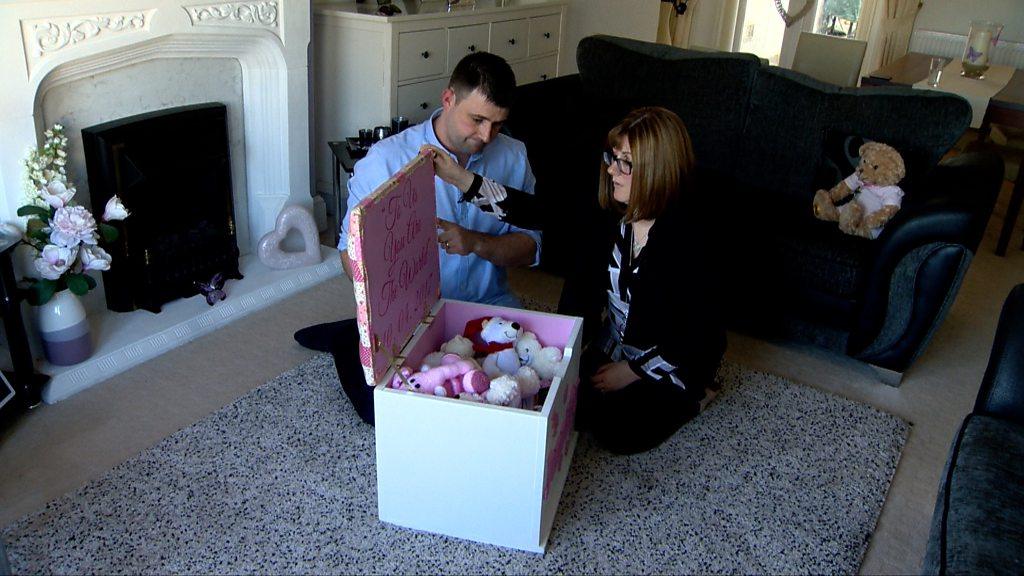
- Published30 April 2019
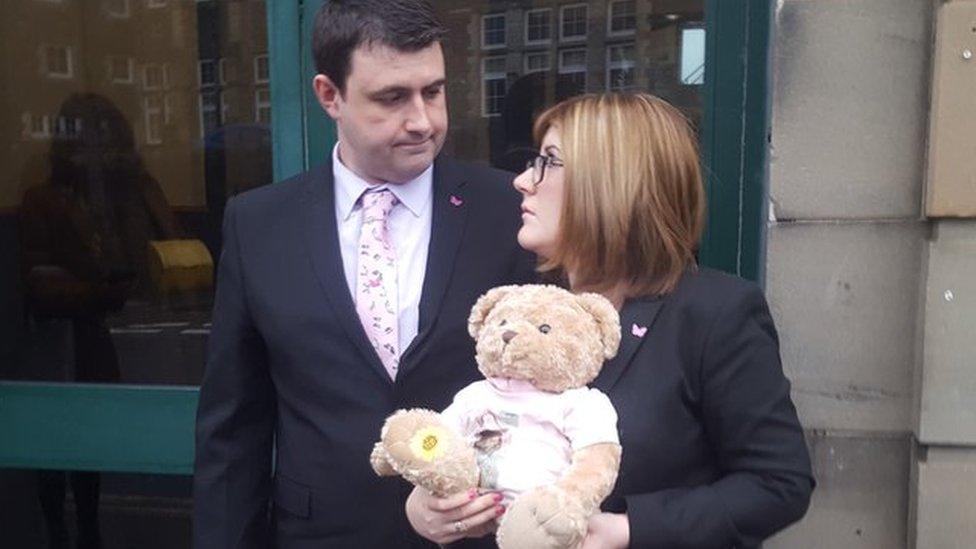
- Published1 May 2019
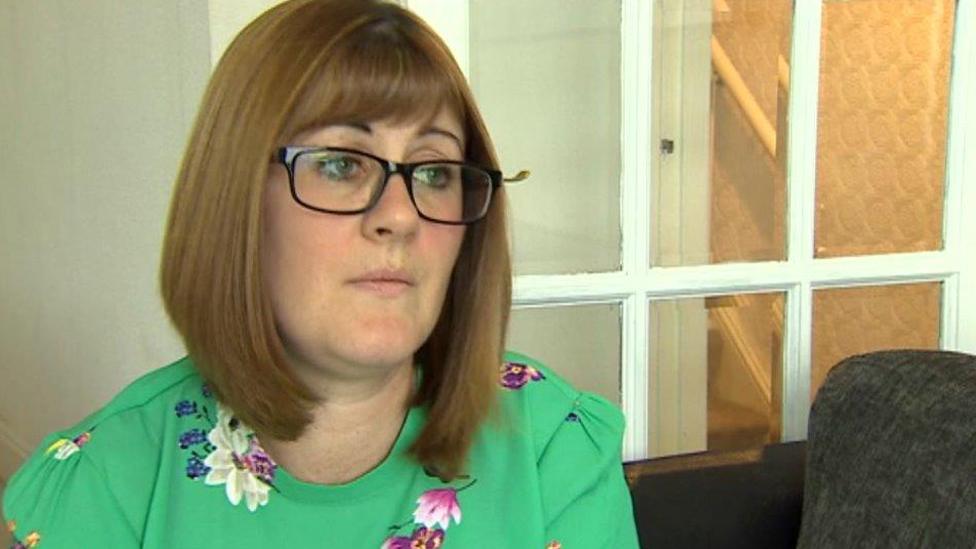
- Published20 January 2020
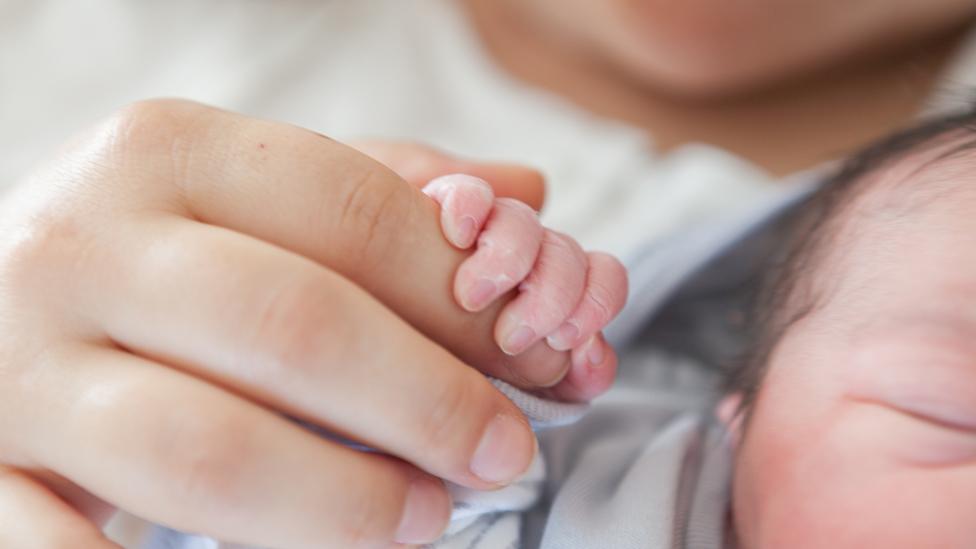
- Published30 April 2019

- Published1 May 2019
